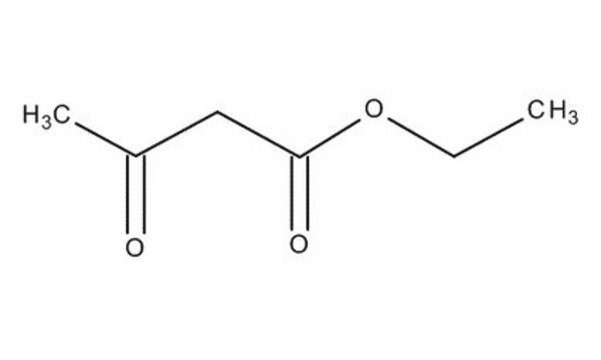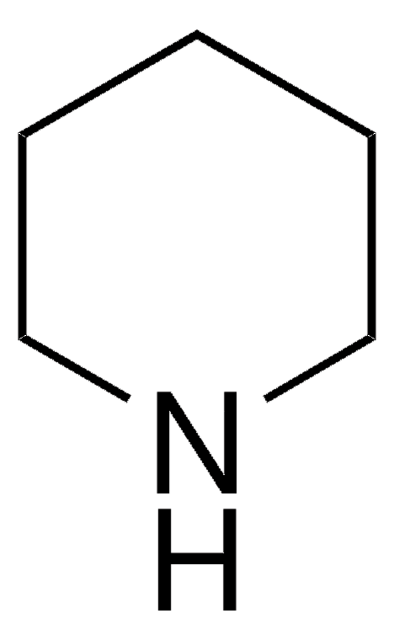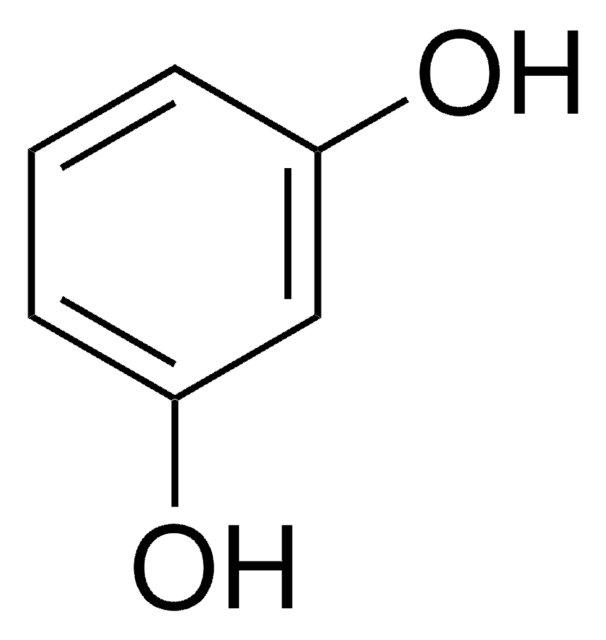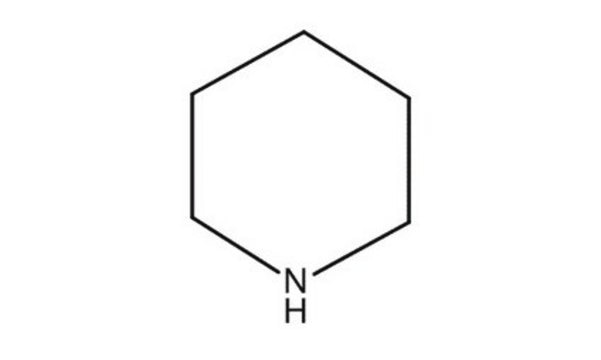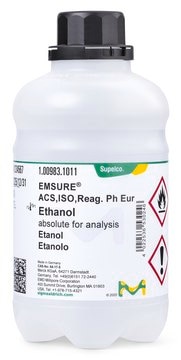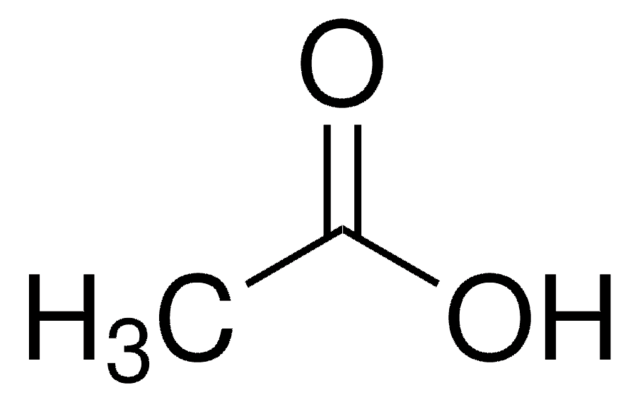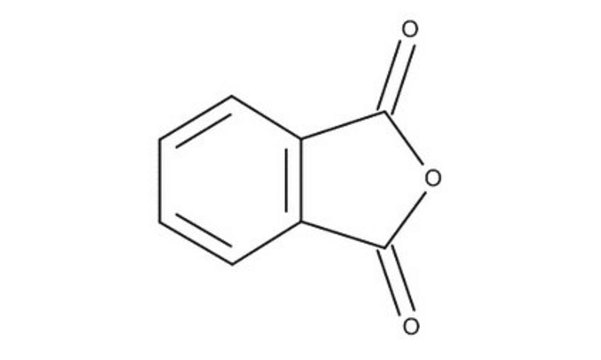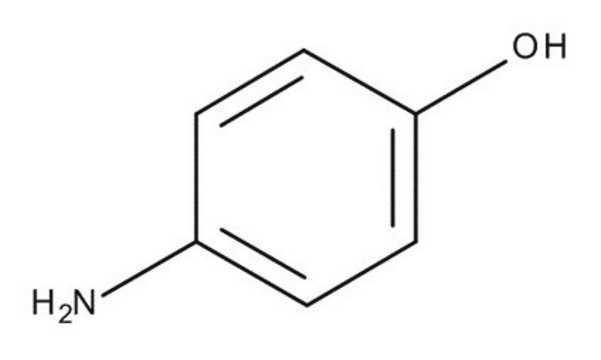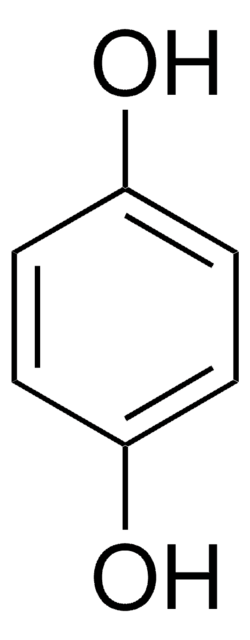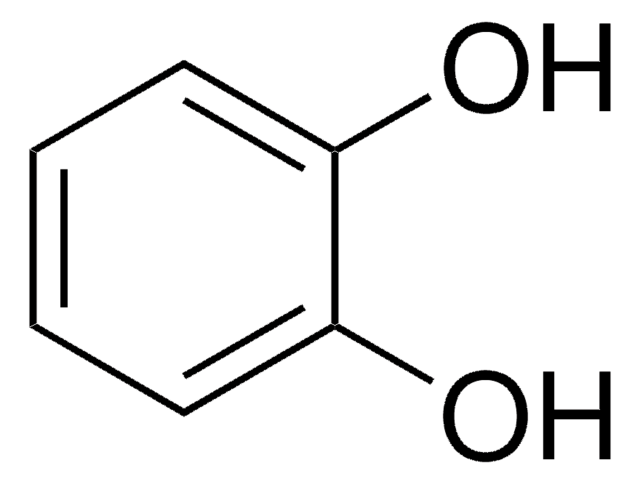8.22303
Resorcinol
for synthesis
Synonym(s):
Resorcinol, 1,3-Dihydroxybenzene
About This Item
Recommended Products
vapor pressure
0.1 hPa ( 20 °C)
Quality Level
assay
≥99.0% (GC)
form
solid
autoignition temp.
605 °C
potency
301 mg/kg LD50, oral (Rat)
3360 mg/kg LD50, skin (Rabbit)
expl. lim.
1.4 % (v/v)
pH
4-6 (20 °C, 100 g/L in H2O)
bp
281 °C/1013 hPa
mp
109-111 °C
transition temp
flash point 127 °C
solubility
1000 g/L
density
1.28 g/cm3 at 20 °C
bulk density
600‑700 kg/m3
storage temp.
2-30°C
InChI
1S/C6H6O2/c7-5-2-1-3-6(8)4-5/h1-4,7-8H
InChI key
GHMLBKRAJCXXBS-UHFFFAOYSA-N
Application
- Electrochemical oxidation of resorcinol: mechanistic insights from experimental and computational studies - This study explores the electrochemical oxidation of resorcinol, providing insights into its physicochemical properties and detection methods (K Ngamchuea et al., 2020).
- Mechanism of base-catalyzed resorcinol-formaldehyde and phenol-resorcinol-formaldehyde condensation reactions: A theoretical study - This article examines the condensation reactions of resorcinol using quantum chemistry methods (T Li et al., 2017).
Analysis Note
Melting range (lower value): ≥ 108 °C
Melting range (upper value): ≤ 112 °C
Identity (IR): passes test
signalword
Danger
Hazard Classifications
Acute Tox. 4 Oral - Aquatic Acute 1 - Aquatic Chronic 3 - Eye Dam. 1 - Skin Irrit. 2 - Skin Sens. 1B - STOT SE 1 Oral - STOT SE 2 Oral
target_organs
Respiratory system
Storage Class
6.1C - Combustible, acute toxic Cat.3 / toxic compounds or compounds which causing chronic effects
wgk_germany
WGK 2
flash_point_f
260.6 °F - closed cup
flash_point_c
127 °C - closed cup
Certificates of Analysis (COA)
Search for Certificates of Analysis (COA) by entering the products Lot/Batch Number. Lot and Batch Numbers can be found on a product’s label following the words ‘Lot’ or ‘Batch’.
Already Own This Product?
Find documentation for the products that you have recently purchased in the Document Library.
Customers Also Viewed
Our team of scientists has experience in all areas of research including Life Science, Material Science, Chemical Synthesis, Chromatography, Analytical and many others.
Contact Technical Service

